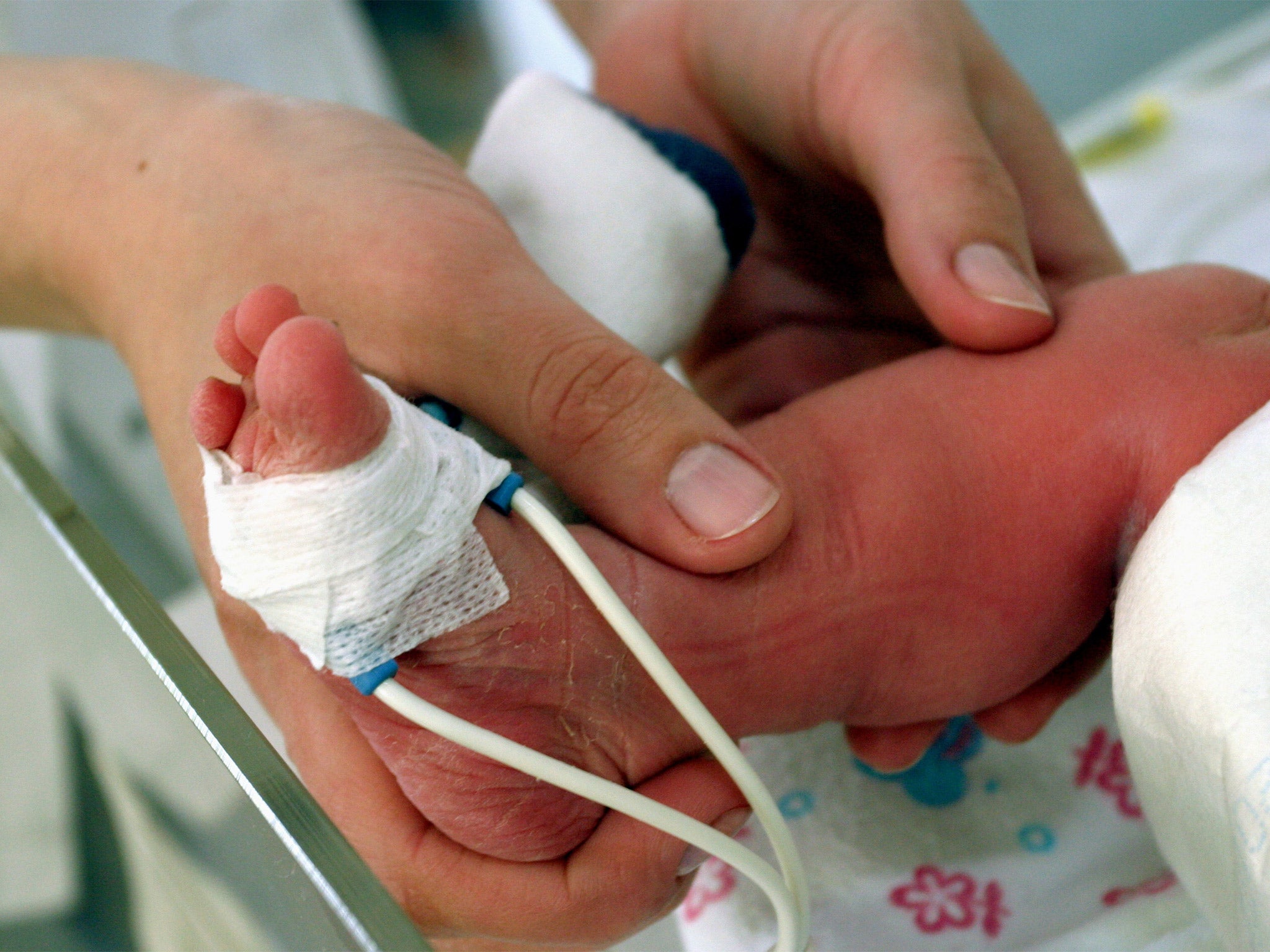Three more babies poisoned by suspected drip feed contamination
More cases identified as investigation continues - at least 18 babies affected

Your support helps us to tell the story
From reproductive rights to climate change to Big Tech, The Independent is on the ground when the story is developing. Whether it's investigating the financials of Elon Musk's pro-Trump PAC or producing our latest documentary, 'The A Word', which shines a light on the American women fighting for reproductive rights, we know how important it is to parse out the facts from the messaging.
At such a critical moment in US history, we need reporters on the ground. Your donation allows us to keep sending journalists to speak to both sides of the story.
The Independent is trusted by Americans across the entire political spectrum. And unlike many other quality news outlets, we choose not to lock Americans out of our reporting and analysis with paywalls. We believe quality journalism should be available to everyone, paid for by those who can afford it.
Your support makes all the difference.Three more babies are known to have been poisoned by a suspected contamination in their drip feed, health officials have said, as investigators revealed that the contaminated product had been sent to 22 hospitals in England.
In total, 18 babies have been affected and one killed, in one of the worst medical contamination incidents in recent years.
All of the cases occurred between Wednesday last week and Sunday. Health officials said they did not expect any further cases.
The babies suffered blood poisoning caused by an infection by the bacteria Bacillus cereus. Public health officials believe the infection was caused by a contaminated intravenous feed. One baby died at St Thomas' Hospital on Sunday. The other babies are said to be responding to antibiotic treatment.
The factory where the feeds were made was investigated by the UK medicines regulator on Wednesday, as experts sought to understand how a batch of the product could have become contaminated.
Today the manufacturer, north London firm ITH Pharma, issued a statement saying the source of the contamination had been found to be a “single raw ingredient used in the liquid feeds”.
The feeds, known as total parenteral nutrition (TPN) have been withdrawn by the Medicines and Healthcare products Regulatory Agency (MHRA) and an alert has been issued to all neontal units.
Health officials do not expect any further cases, as it is believed that only one batch of the product was contaminated, and that this batch would have expired on Monday.
The bags of nutrients, said to be one of the most complex pharmaceutical products in use, contains up to 50 different chemicals. The company has provided 800,000 products of the kind to hospitals in the past year.
In a statement, Karen Hamling, managing director of ITH Pharma said: “From investigations carried out so far, it would appear the potential contamination is linked to a sourced single raw material ingredient.”
Ms Hamling said she had been “deeply saddened” by the incident.
The Health Secretary Jeremy Hunt said that the incident was “tragic”.
“Today's story about the tragic blood poisoning of 18 children shows we can never take safety for granted,” he said, during a conference of NHS managers. “It also shows the importance of prompt and early identification of problems.”
The product was withdrawn on Wednesday after investigators isolated the probable source of the infections after cases of similar poisoning were reported at multiple hospitals.
Originally it was believed that 15 babies had been infected at six hospitals in the south and east of England. However, Public Health England said this morning that more cases, linked to the same suspected contamination, may come to the light over the course of their investigation. Later in the day they confirmed that cases had occurred at three more hospitals - Peterborough City Hospital, Southend University Hospital and Basildon University Hospital. MHRA said that 22 hospitals had received the “implicated stock”.
ITH Pharma was founded in 2008 by Ms Hamling and her husband, Adam Bloom, both of whom are trained pharmacists.
It was rated one of Britain's fastest-growing companies in 2012 and made profits of more than £500,000 last year.
Join our commenting forum
Join thought-provoking conversations, follow other Independent readers and see their replies
Comments